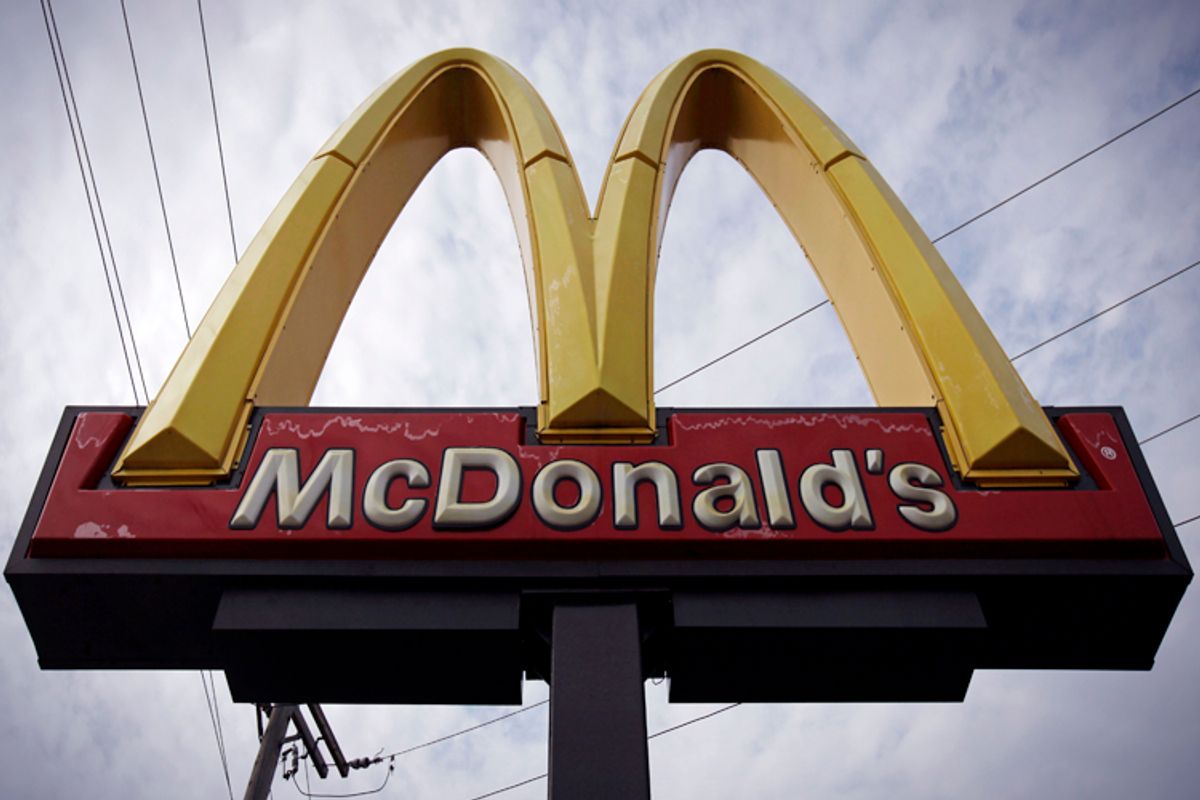
Are you feeling impatient right now? Do you find it difficult to slow down long enough to enjoy life’s simple pleasures, such as a sunset or a beautiful piece of music?
Perhaps you passed too many fast-food outlets—or billboards promoting them—on the way to work.
A newly published study finds a link between impatience and exposure to fast-food logos, which are arguably the most pervasive reminders of our instant-gratification culture. A research team led by the University of Toronto’s Sanford DeVoe reports seeing such symbols “undermines people’s ability to experience happiness from savoring pleasurable experiences.”
Those golden arches may be screwing with your attention span.
In the journal Social Psychological and Personality Science, DeVoe and his colleagues Julian House and Chen-Bo Zhong describe several experiments providing evidence for their thesis. In one, the 257 participants (average age 35) first looked at a series of photographs, purportedly so they could rate their suitability for advertising purposes.
Two of the five pictures were of food items: One featured a cup of coffee, the other a hamburger and French fries. For half the participants, these items were presented in ceramic tableware; for the others, they were shown in “standard McDonald’s packaging.”
Afterwards, “half of the participants immediately rated their happiness on a seven-point scale, while the other half were presented with 10 photographs of scenic natural beauty before rating their happiness.”
Overall, those who looked at the nature photos reported higher levels of happiness. But among that group, those who had seen the fast-food logos reported feeling significantly less happy than those who had seen the generic food photos.
“This reveals that fast food … impairs individuals’ savoring of pleasant stimuli,” the researchers write.
Another experiment used the same format, except a beautiful piece of music—the famous Flower Duet from the opera Lakme—was used in place of the nature photos. After listening to an 86-second excerpt of the piece, the 122 participants (average age 31) were asked to describe their level of happiness. They also reported their level of patience or impatience, both directly and indirectly (by estimating how long they had been listening).
The results: Those who had seen the McDonald’s logos reported feeling more impatient for the (exquisitely beautiful) number to end so they could complete the survey. Consistent with this finding, they also felt the music “had lasted for a longer time,” the researchers report. “This suggests that participants primed with fast food experienced the same period of time as passing more slowly.”
Given the ubiquity of such symbols, the notion that merely seeing them puts us in an impatient frame of mind helps explain our high irritation levels. As DeVoe and his colleagues note, impatience “hampers people’s ability to fully experience and enjoy pleasurable moments in life—‘smelling the roses,’ so to speak.”
The implications of this troubling dynamic are certainly worth thinking about. But I’m itching to move on to my next piece.

Shares